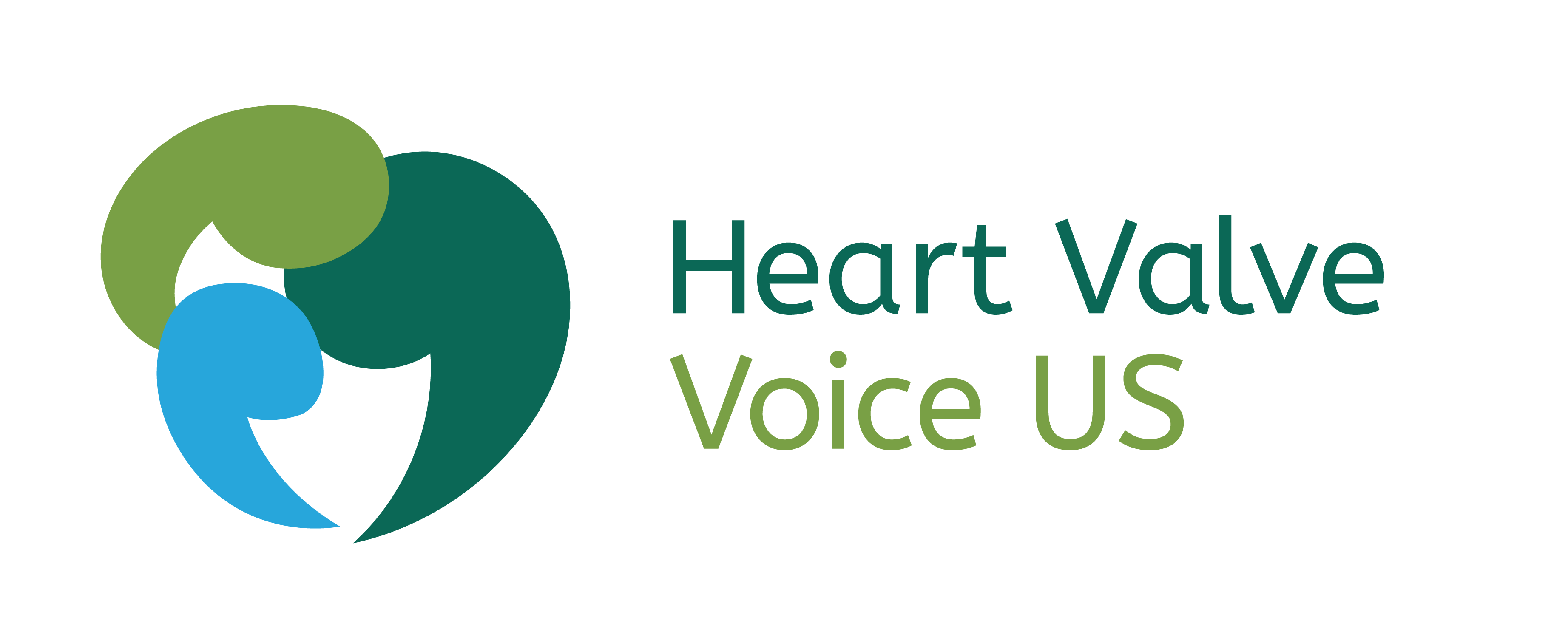 Can you share your experience with heart valve disease?
Can you share your experience with heart valve disease?
My husband had a sudden experience on January 20, 2005, at the age of 29. I was at work and five months pregnant with our first child. Fortunately, due to inclement weather, my husband was working from home that day and was able to contact his parents—who lived nearby—to take him to the hospital. He suddenly began experiencing severe back pain and couldn’t see. He knew something was very wrong. Once we arrived at the hospital, the doctors quickly began conducting tests. His chest x-ray and blood work was normal. The doctors couldn’t find anything wrong, but a nurse encouraged a CT scan to be taken.
The result showed an ascending aortic aneurysm and dissection. He was urgently transferred by ambulance to the closest heart center, Medstar Union Memorial.
I rushed to the hospital and briefly saw my husband before he was rushed into emergency surgery.
His surgeon, Dr. Luis Dibos, shared the survival statistics and that he would do everything he could. Family and friends rushed to the hospital to wait along with me. Waiting was painful with thoughts of what could happen. So many unknowns and an uncertain future with a baby due in June. About 8 hours later the surgery was complete and successful. They implanted a St. Jude aortic valve and Dacron graft. The first 24-48 hours were critical. I visited him briefly the first night after surgery, sedated with lines and tubes and the next day could feel him squeeze my hand. After two days in the cardiac ICU, he was moved to a different room where he stayed for seven days. Those days showed progression, like the first steps, coughing with a pillow at his chest and learning about the new medications that would be in his routine.
The recovery was physically difficult, but luckily, he had no complications. Within a few months he eased back to many things. There were so many things to adjust to: blood pressure medications, warfarin and INR testing, not lifting heavy things (which he previously did all the time) as to not strain the aorta, sold his motorcycles (as a precaution), and many other psychological worries related to the trauma of the near-death experience.
What encouraged you to become a patient advocate?
This experience taught me so much about the necessity of advocating for yourself and other patients. My husband’s primary care doctor diagnosed him a few years before his aortic dissection with mitral valve prolapse. He based this on his stethoscope skills, which we believed! We should have pursued testing which could have identified a bicuspid valve and thus been monitored, avoiding an emergent surgery. Additionally, had the ER doctor not listened to the nurse’s advice for a CT scan, my husband would have been sent home and died. The lack of physician (primary care and ER) knowledge about heart valve disease and detection was astounding. Fortunately, my husband listened to his body and went to the ER. Many people brush off symptoms for illnesses, and I encourage people to get checked.
One other thing stands out. The doctors and surgeons did not prepare us for the emotional health impact due to not only the trauma of the aneurysm and dissection, but the lifelong impact of medications and restrictions. This was unexpected and patients would benefit from a mental wellness component to recovery.
Have you experienced any issues accessing treatment for your valve disease from your insurance company? If so, did you navigate those issues?
We did not have any problems with our insurance. Right after the surgery, the surgeon requested the at home INR testing device which was covered through insurance. That has helped maintain a consistent INR due to being able to test weekly.
How did you become involved with Heart Valve Voice US, as well as other heart health advocacy organizations?
I recently learned about Heart Valve Voice US but have always followed various heart health organizations. My husband connected early on with an aortic health organization, but we took a step back for many years. It seemed that many of the people involved had a lot of complications or multiple surgeries and it became quite depressing for my husband. While I believe those people need support, it would be beneficial to connect with others with more similar stories. This year he celebrated 20 years since his surgery, and it felt like the right time to get more involved and share the experience of the spouse/caregiver.
Why do you think it is important for other patients living with heart valve disease to share their story?
There are many stories to tell, and it helps those living with heart valve disease to know they aren’t alone. It’s quite easy to feel isolated and to have the support of others who relate and can share advice, is a part of the disease management and recovery process. Also, as noted previously, it would be even more helpful to identify ways to match people who have similar journeys.
In your opinion, what can patients, health professionals, and advocacy groups do to continue raising awareness about valve disease?
Spread the word about heart valve disease – talk about it, share your story, and encourage others to do the same. Ongoing education for primary care providers, urgent care staff, and emergency room professionals is essential to improve recognition of symptoms and understanding of treatment options.
Integrate valve disease awareness into public health initiatives, medical conferences, first responder training, and across major media platforms and social media campaigns. Messaging should emphasize the importance of listening to your body and not ignoring symptoms. This will not only impact heart valve disease, but so many other health conditions.
What is one fun fact that others may not know about you?
I love a good road trip and have been to every continental state except Oregon!




